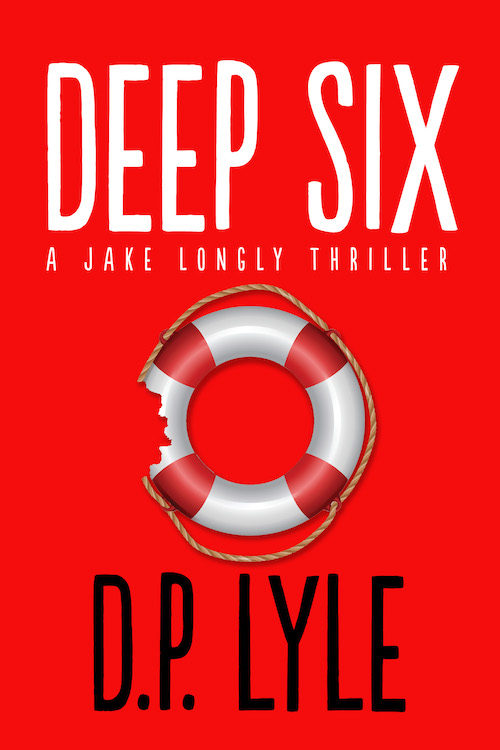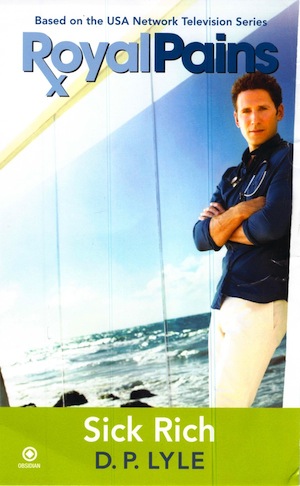
A lot of people think that daily journalism must be a great training ground for novelists. I tell them that, for the most part, it is not.
As someone who worked as a news reporter and editor for forty years before writing crime novels, I was never comfortable with the bad writing habits and journalistic traditions that make most news writing unnecessarily turgid and tedious. In fact, I spent my career at The Providence Journal, The Hartford Courant and The Associated Press rebelling against those traditions and the editors who enforce them.
I wanted to write about real flesh-and-blood characters, but most news stories are populated by stick figures identified by little more than name, age and job title. I wanted to set my stories in real places, but most news stories use street addresses in lieu of a sense of place. I wanted to write yarns with beginnings, middles and ends, but most news stories are “articles” that insert information in order of its importance and then dribble pitifully to an end.
But the biggest fault I find with most news reports is that they are written in “journalese,” a standard journalistic voice that is stiffly formal, humorless, devoid of personality, and filled with bizarre sentence structures found nowhere else in English.
The best way to understand journalism’s voice problem is to take a fine piece of writing that we are all familiar with and imagine what it would look like if a journalist had written it.
Consider the first sentence of the King James version of the Bible: “In the beginning, God created the Heaven and the Earth.”
Nice sentence. It’s simple, clear, and tells a big story in very few words. But if the typical journalist had written it, it would have come out something like this:
“In a series of surprise moves intended to bring all of creation into existence out of what leading scientists call the ‘singularity,’ before energy, matter or even time existed, God yesterday said ‘Let there be light,’ according to reliable sources close to the project.”
If a journalist had written the Bible, I doubt anyone would have read it.
Voice, after all, is critical to the written word. It’s the reason we have favorite writers. It’s not what a writer has to say but how he or she says it that brings readers back story after story or book after book. It works the same way in books as it does in life. Suppose you are at a party where someone is telling a story. It’s not the story that makes people crowd around to listen. It’s the storyteller. If someone else were talking, nobody would pay attention.
The best writers know that readers don’t read with their eyes. They really read with their ears. They hear the writer talking to them from the page, and what that voice sounds like is critical. The late great Robert B. Parker once told me that the main reason readers loved his Spenser and Jesse Stone novels is the same reason they love certain songs. They like the way they sound.
One of the reasons some fine journalists leave the profession to become novelists is that they want to be free to write well; and some, such as Michael Connelly and Ace Atkins, succeed spectacularly. But many former journalists who aspire to write novels tell me that they struggle because they find the transition from “journalese” to good writing difficult.
Me? I can’t begin to write a novel until I fashion a paragraph that gets the voice just right. Everything flows from that.
When I began The Dread Line, the new novel in my Edgar Award-winning series featuring a former investigative reporter in Providence, R.I., the paragraph that did the trick was this:
“He was a serial killer, but I didn’t hold that against him. It was just his nature. The way he killed irked me some. His victims were all missing their heads. But what I couldn’t abide was his habit of using my porch as a dump site.”
The killer turns out to be a feral tomcat that was leaving its daily kills on Mulligan’s porch, but that paragraph had the voice and the hard-boiled mood, that I was seeking. With that, I was off and running.
As a journalist, I was one of the lucky ones. Unlike many reporters burdened with editors who rigidly enforce harmful journalism traditions, I was blessed with a number of bosses who encouraged me to be a storyteller—and even to teach my colleagues how to do it.
And unlike most journalists, I spent much of my career writing and editing local, national, and international investigative stories, developing skills that I could pass on to the hero of my hard-boiled crime novels.
During my four decades in the news business, I also came to know hundreds of cops and FBI agents, lawyers and judges, mobsters and corrupt politicians, con artists and drug dealers, hitmen and gangbangers, prostitutes and snitches—experiences I draw on to create characters and plots.
But the main lesson I carried with me when I retired from The Associated Press seven years ago to write crime novels was this: Writing is a job. You do it every say, whether you feel like it or not. You do not wait for inspiration. You do not dither hoping that your muse will turn up. You put your butt in your desk chair every day and write.
Bruce DeSilva grew up in a parochial Massachusetts mill town where metaphors and alliteration were always in short supply. Nevertheless, his crime fiction has won the Edgar and Macavity Awards; been listed as a finalist for the Shamus, Anthony, and Barry Awards; and been published in ten foreign languages. His short stories have appeared in Akashic Press’s noir anthologies, and his book reviews for The Associated Press appear in hundreds of publications. Previously, he was a journalist for 40 years, writing and editing stories that won nearly every journalism prize including the Pulitzer. His fifth novel, The Dread Line, has just been published in hardcover and e-book editions by Forge and can be ordered here: https://www.amazon.com/Dread-Line-Mulligan-Novel-Liam/dp/0765374331/ref=sr_1_1?s=books&ie=UTF8&qid=1471633059&sr=1-1&keywords=bruce+desilva


























Richard Mabry
August 22, 2016 at 7:44 am
Bruce, thanks for an excellent post–especially the note that readers read, not with their eyes, but with their ears. Before retiring from medicine I’d written a number of scientific texts and papers, but that style of writing had to go out the window before I produced a novel that garnered a contract.
LikeLiked by 2 people
J. R. Lindermuth
August 22, 2016 at 8:07 am
Amen.
LikeLike
Chris Norbury
August 22, 2016 at 8:21 am
I agree with Richard Mabry. A great novel has great rhythm.
LikeLiked by 1 person
Ann Blair Kloman
August 22, 2016 at 8:21 am
The ‘hook’ on your serial killer was the funniest ever! Ann
LikeLiked by 1 person
Paul Lees-Haley
August 22, 2016 at 8:38 am
Bruce,
Wonderful post.
I remember meeting you when we had lunch together at ThrillerFest in 2010, just before Rogue Island came out. It’s been a pleasure to watch your fiction career blossom.
Paul Lees-Haley
LikeLike
Sibella Giorello
August 22, 2016 at 3:11 pm
As a recovering journalist, I empathize with this post! Thanks for the laugh about the opening line of Genesis, too.
Newspapers can function as a wonderful boot camp for writing discipline, but any potential novelist needs to get out of the newsroom before their style becomes the sound of a loose jackhammer.
Can’t wait to read your novel. Thanks for posting.
LikeLike
nancycolesilverman
August 22, 2016 at 4:28 pm
I agree with you, Bruce. When I retired from talk radio, forsaking news to write fiction, I had vision of a former editor standing over me with a sickle threatening to cut my head off for what I was about to do.
LikeLike
Mike Fuller Author
August 22, 2016 at 5:00 pm
Same issues, different forms. Police offense reports show what “the witness stated” but leave out the tears clearing a path through the dirt from under her eyes and her trembling fingers writhing over and over each other until the color is gone. What we detectives sensed often told us more than what we heard and duly recorded. Now that I’m retired, the challenge and the fun is sharing all of that in my fiction.
LikeLike
Jane Risdon
September 7, 2016 at 7:48 am
Fascinating post, good luck with your writing career. Will reblogg on my author page ad also tweet.:)
LikeLike
Jane Risdon
September 7, 2016 at 7:49 am
Reblogged this on Jane Risdon and commented:
Not read this author yet but his past career makes for such interesting reading I think I must give him a go.
LikeLike
Robin Leigh Morgan
September 7, 2016 at 8:13 am
CONGRATS on your transition.
I’ve made a somewhat similar transition, from writing items for a community newspaper to becoming a romance author. I’m also a blogger and book reviewer.
Writing is an on-going learning experience, especially when it comes to romance and all the fine points which are needed depending on what sub-genre of romance you’re writing in.
LikeLike
jfredlee
September 7, 2016 at 1:35 pm
Fabulous post, Bruce. I can understand the frustration in trying to get over your journalistic training and experience in order to tell a great story. As a journalist you deal in the bare bones of the story — the who, what, where, why, how and when. But as a novelist you’ve got to add the human element and put flesh to those bones to convey the emotional side, as well. I was fortunate to spend my career writing ads and commercials, so I got to use character. logic and humor to sell, which, when done right, leaves the reader/viewer with a set of emotions that help sell the product. You, and any other journalist making the jump from the front page to a book full of pages, characters, backgrounds, emotions and actions — you ALL have my respect.
LikeLike